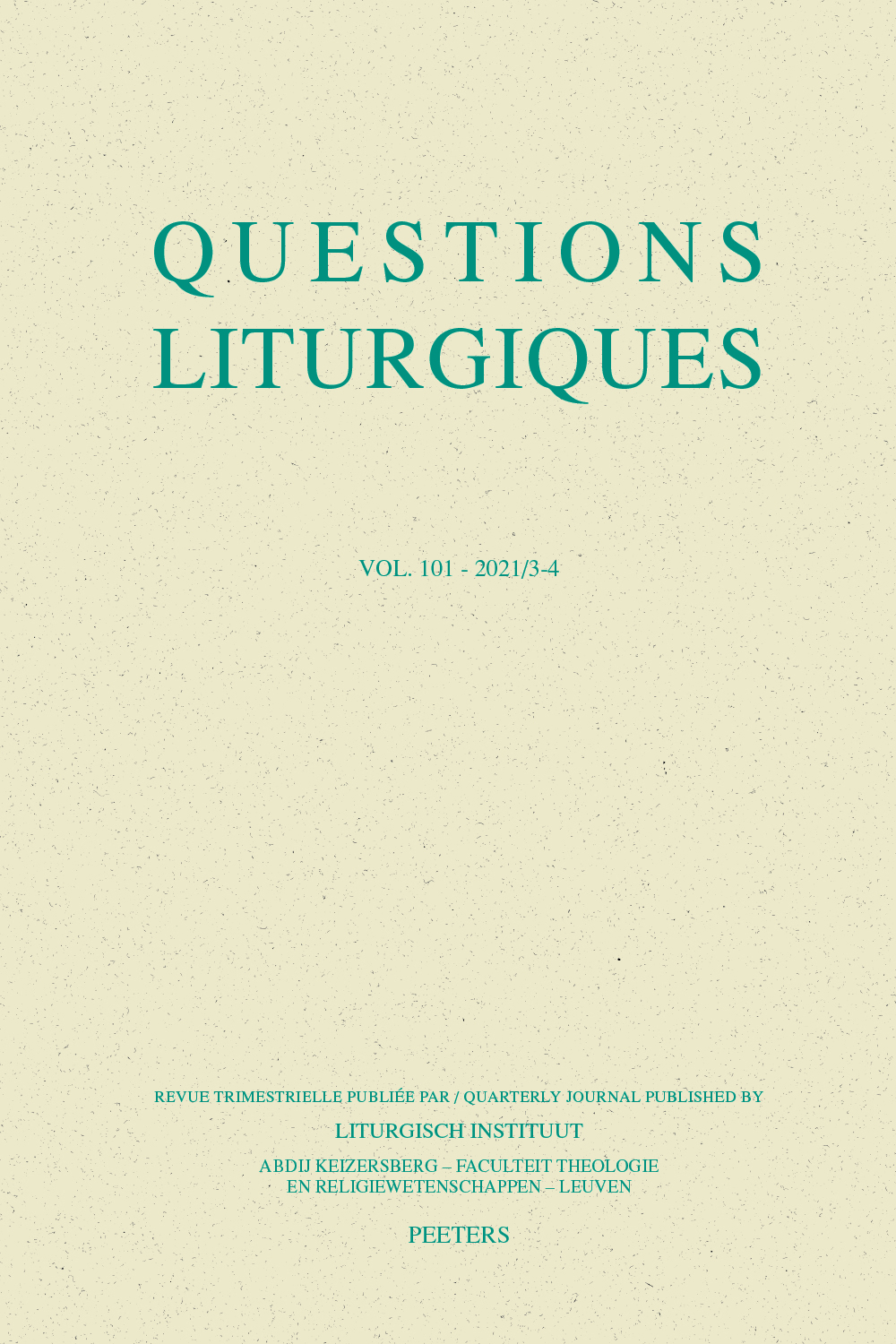 previous article in this issue previous article in this issue | next article in this issue  |

Preview first page |
Document Details : Title: Early Christian Chronology and the Origins of the Christmas Date Subtitle: In Defense of the 'Calculation Theory' Author(s): NOTHAFT, C. Philipp E. Journal: Questions Liturgiques/Studies in Liturgy Volume: 94 Issue: 3-4 Date: 2013 Pages: 247-265 DOI: 10.2143/QL.94.3.3007366 Abstract : While the view that the celebration of Christmas on 25 December came about as the product of pagan influence continues to enjoy unbounded popularity, the rivaling 'calculation theory' seems to have lost ground, owing in part to the recent criticism leveled against it by Hans Förster. The present article adduces Christian chronological sources from the third century in a fresh defense of the view that the choice of 25 December as the birthday of Christ was originally the result of chronological speculation. As will be demonstrated, Christian scholars from this period had the kind of arguments at their disposal that would have supported such a conclusion independently of inter-religious influence. Moreover, there is evidence to suggest that Julius Africanus already reckoned with this date at the beginning of the third century. As a result, the 'calculation theory' is still deserving of serious consideration from scholars investigating the origins of Christmas. Alors que l’opinion que la célébration de Noël le 25 décembre, présentée comme le produit d’une influence païenne, continue à jouir d’une immense popularité, la ‘théorie calculatrice’ semble avoir perdu du terrain en raison en partie de la récente critique soulevée contre elle par Hans Förster. Le présent article veut apporter à l’appui de sources chronologiques chrétiennes du troisième siècle une rigoureuse défense du choix du 25 décembre comme date de naissance du Christ étant originellement le résultat d’une spéculation chronologique. Comme démontré, les écrivains chrétiens de cette période avaient le genre d’arguments à leur disposition qui soutenaient une telle conclusion, indépendamment d’une influence interreligieuse. De plus, il est probable que Jules l’Africain adoptait déjà cette date au début du troisième siècle. Il en résulte que la ‘théorie calculatrice’ mérite toujours d’être prise en sérieuse considération par les chercheurs intéressés aux origines de Noël. |
|


